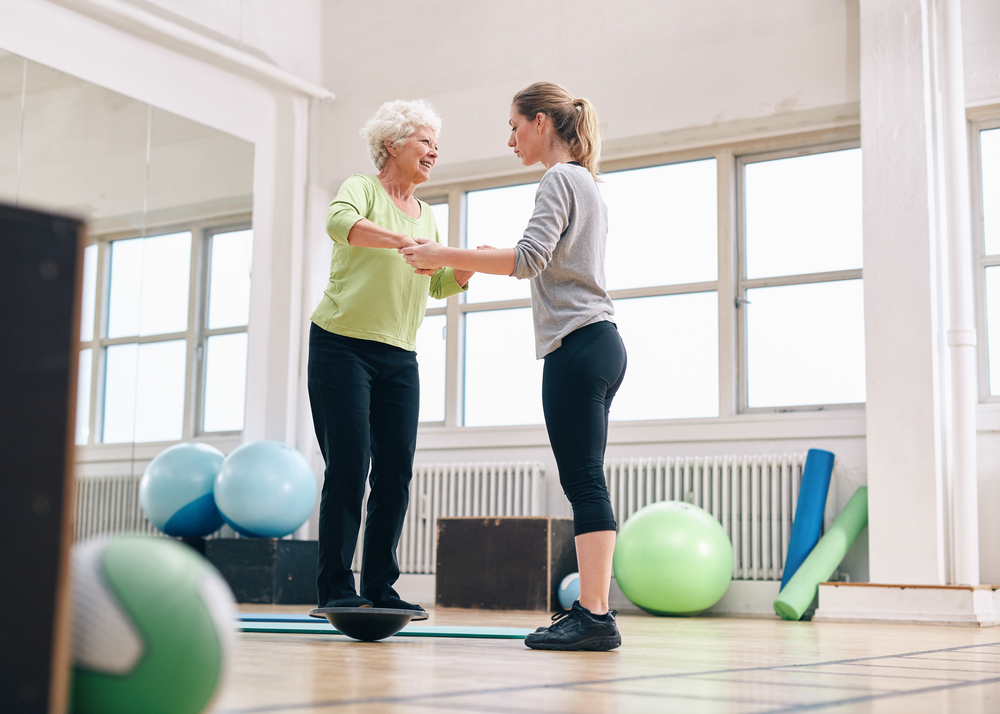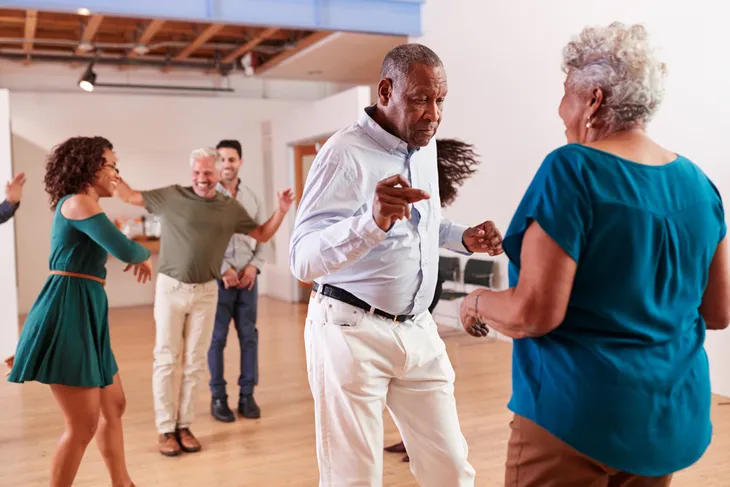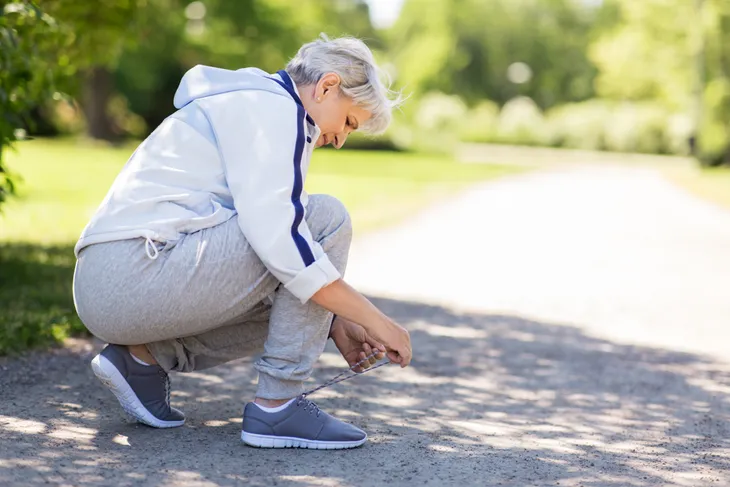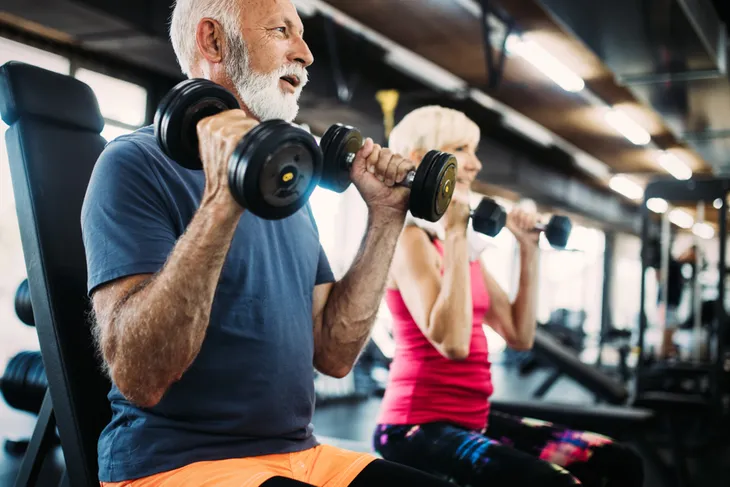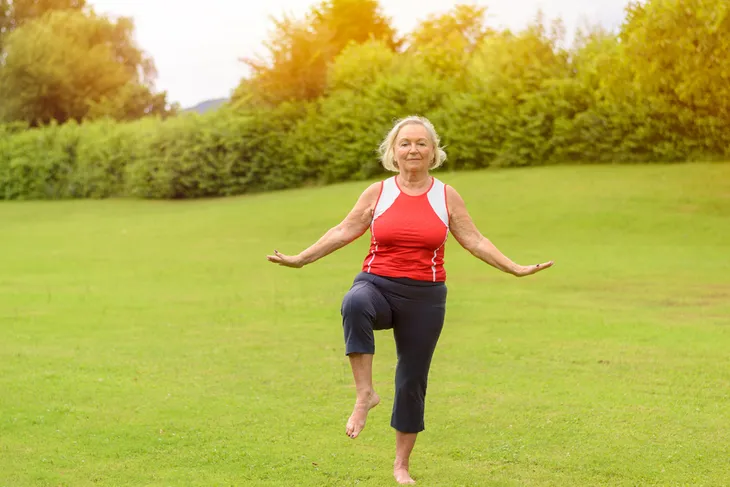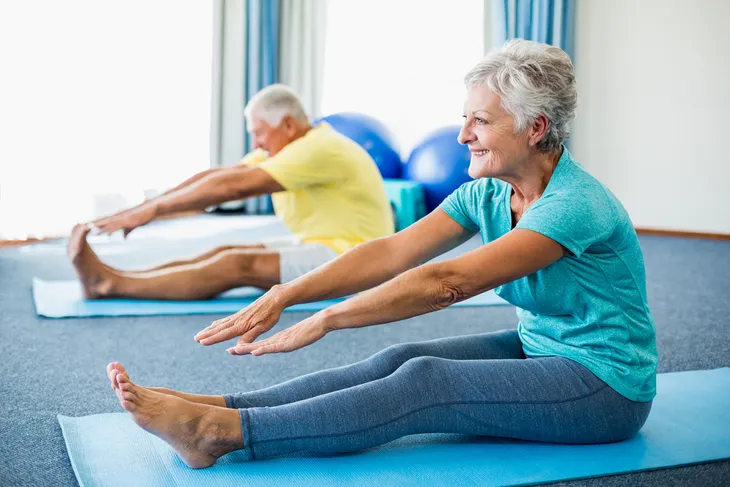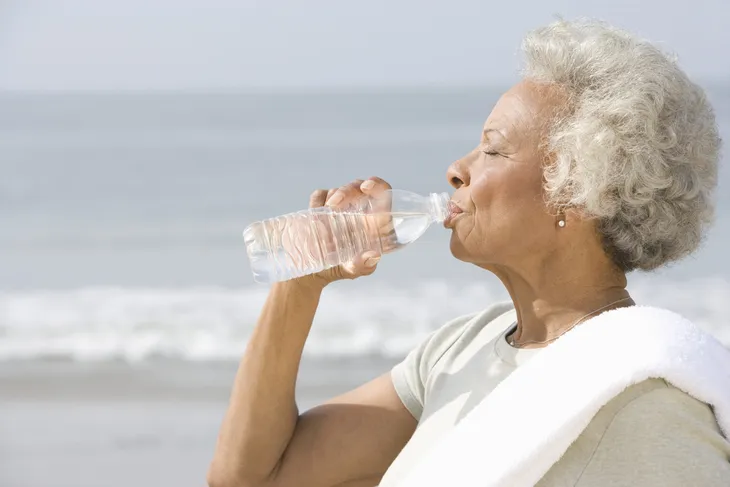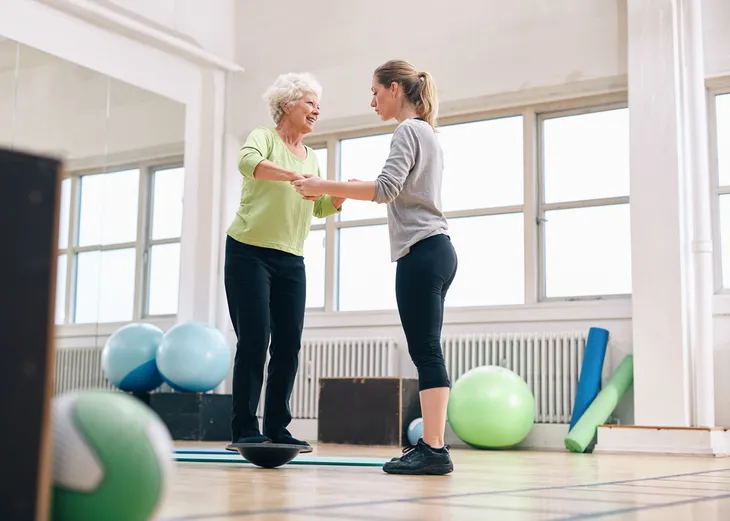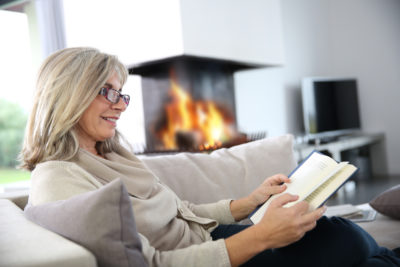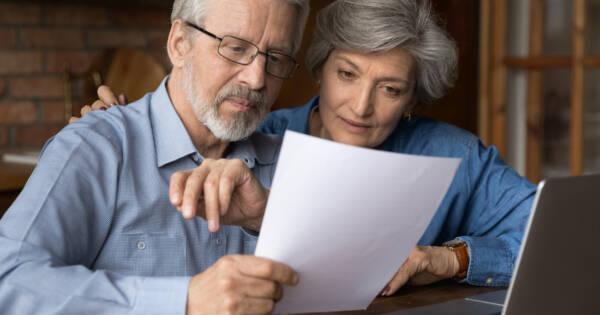There is a common conception that as we get older, we become more frail and our risk of falling increases. While this may be true, falling isn’t a “normal” part of aging. Your chances of falling increase when you go an extended period of time (6-months to a year) without exercising. People who don’t exercise aren’t building strength in their muscles and joints, which causes their muscles to start withering away.
People who don’t exercise regularly are left with a decreased ability to move their muscles and joints, particularly when walking or climbing stairs. Their speed will also decrease, leaving them unsteady on their feet, and consequently at a higher risk for falling. If you’re nervous about your stability, this is the right article for you! Even as a senior, there is a lot you can do to prevent falls from occurring, starting today! Here are 7 tips on how to improve body awareness and prevent falls…
Want senior content delivered straight to your inbox? Sign up for our exclusive email list and receive articles and news on diet & nutrition, fitness, and mental health dedicated specifically to our senior audience!
Exercise Daily
It’s always important to maintain good fitness, but as we age it’s even more important to stay fit and strong. This doesn’t mean going to the gym every day and lifting heavy weights. All it takes is participating in daily exercise. You can tailor this fitness to your preference, whether it be Zumba, a yoga class, going for a swim, or a jog. Plan ahead what exercise you’ll be doing each day, so that you get a variety of cardio and strength training workouts in. For more information, check out this article on Exercises That Help Prevent Falls in Seniors.
Proper Footwear
Proper footwear is something that is essential, but also something we often neglect or fail to uphold. We often choose style over comfort or cut corners with cost by purchasing a cheaper brand. While we don’t expect people to spend a fortune on footwear, it is something you’ll want to invest in, especially as a senior.
Wearing the right shoes is one of the best ways to improve body awareness and avoid falling. Ideally, you should own multiple pairs of shoes for different activities. Or invest in one versatile pair of shoes. For example, you should have a good pair of running shoes and a comfortable pair of indoor shoes. You also need to make sure they fit properly to lower the risk of falling (i.e., avoid shoes that are too big).
Lift Weights
Another great way to improve body awareness and increase muscle strength is by lifting weights. It doesn’t have to be a lot of weight, even just lifting a couple pounds on a regular basis will help maintain muscle strength. Put it this way, the stronger and more fit your leg muscles are, the faster you will walk and the more your risk of falling decreases.
As we previously mentioned, falling occurs when our muscles become weak and our walking speed slows down. This is a bad combination as it leads you to be unable to lift your feet high enough to clear the ground and will slow down your reaction time. My favorite saying is: “you can’t go wrong getting strong.” For tips on how to get started with lifting weights, visit a local physiotherapist for a proper assessment and strength training routine.
Balancing Exercises
Not surprisingly, another key to prevent falling is to improve balance. There are plenty of exercises that target balance. The root of it goes back to prepping and strengthening those reflexes and muscles. The best way to do this is by holding positions that aren’t necessarily comfortable, but after lots of practice, they become more stable. For example, some people feel unsteady standing on one leg. Turn this into a daily exercise and soon you’ll be hopping from one leg to the next!
To start, be sure to practice these exercises safely. When standing on one leg, be sure to stand in front of a wall or railing for support. Then try standing on one leg for as long as possible. As time goes by, your balance and body awareness will improve.
Stretch Your Muscles
Our muscles and tendons become stiff as we age leaving us less flexible than we were when we were younger. To help combat this, get into the habit of stretching tight muscles once or twice daily to help improve flexibility.
The more flexible a person is, the less rigid their muscles are, making it easier to move around and lessen their chance of falling. If you’re unsure of how to stretch, visit a personal trainer, physiotherapist, or head to a local yoga class to get started.
Hydrate Your body
Most people don’t drink enough water, and this can sometimes get worse with age. The golden thumb rule is to aim for 6 to 8-glasses of water. If you’re not drinking enough water, your body will become dehydrated and less likely to respond as quickly to tripping and falling. Start off on the right foot by beginning each day with a big glass of water first thing in the morning.
Proper hydration ensures the body is able to walk faster, respond to external stimuli (i.e., tripping over a curb) and maintain the strength and mental energy to focus on recovering from a near falling incident.
Visit a Professional
If you’re still concerned about falling or have more questions about any of the exercises or activities included in this list, it’s best to go visit a physiotherapist or work with a personal trainer. A physiotherapist is trained to assess if there’s anything internally going on that might leave a person at an increased risk of falling, such as poor balance, vertigo, or other vestibular issues.
Physiotherapists are also equipped to create and provide programs that can help improve balance so you don’t have to worry about falling in the future.
